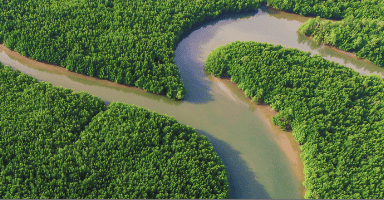The Challenge
The need for trustworthy data and information is paramount across research, government, and industry sectors. Researchers require accurate data to conduct their studies and derive valid conclusions. Governments need reliable data for policy-making, environmental management, and assessing regulatory compliance. Industry requires trustworthy data for environmental impact assessments and sustainable resource management.
Australia has many excellent producers of data and models. However, there is currently no whole-of-system approach to overcome the challenges of discovering and accessing data and models, assuring their reliability, and addressing the costliness of making them interoperable.
The Response
The Planet Research Data Commons (Planet RDC) is working closely with Australian Government Department of Climate Change, Energy, the Environment and Water (DCCEEW), national research infrastructures, state agencies, industry partners, Traditional Owners, universities, research institutions and researchers to establish ‘trusted data and information supply chains’ for priority regional use cases.
The Independent Review of the Environment Protection and Biodiversity Conservation Act highlighted the need for an effective ‘supply chain’ of environmental information. The information required by researchers and decision-makers to understand the environment is obtained through a series of activities (see the SAFE guide). As with more traditional supply chains, each activity can be carried out by a different party, and coordination is needed for an efficient chain that delivers the right products at the right time to the right customers.
A trusted environmental data and information supply chain (TEDSIC) requires an effective system of data-sharing agreements and information systems that can talk with each other, and reliable data and analytics products.
Three exemplar projects will create TEDISCs for regional use cases. These will be in regions of high biodiversity value, with different pressures on the environment and different groups of stakeholders
Each exemplar project will establish:
- appropriate business models
- data governance
- practices to make data and software/models FAIR
- stakeholder consensus on agreed standards and best practices for data, metadata, vocabularies, data exchange, quality, provenance, and trusted repositories
- reusable infrastructure solutions to enable data and model sharing and use.
The TEDISC program will also benefit from input from other Planet RDC focus areas.
Researchers will gain access to data and models from the Planet RDC as the program develops.
Who Will Benefit
Program Design and Consultation
The Planet RDC is following a community co-design process to deliver its programs. The Planet RDC Program Description outlines the national consultation process and outcomes.
Through our 2022 national consultation and policy analysis we identified major national stakeholders and national priorities. Further consultations with the community have identified the Pilbara region as the first use case for establishing a trusted environmental data and information supply chain. A workshop with over 80 stakeholders was held in June 2023 in Perth (read the report).
Further consultations are underway to select other regional use cases that meet the Nature Positive Plan criteria of regions with “development pressure and with high biodiversity values … [and] …a variety of ecosystem types”.
These regional use cases will need to have existing stakeholder partnerships, including research partners. These projects will be pilots for establishing trusted environmental data and information supply chains for other regions, therefore a variety of ecosystem types, pressures, and stakeholder groups is desirable.
The program guidelines for TEDISC provides potential project partners with the program strategy and intended outcomes, and clear guidance around expectations for projects. To learn more about collaborating with us on this program, please get in touch.
Target Outcomes
The TEDISC program supports research translation leading to effective investment decision making by government and industry to support the protection and enhancement of Australia’s natural environment, particularly around enabling assessment of cumulative impact.
A key outcome of the program will be working with DCCEEW to provide input into their National Environmental Data Strategy, and input into technical guidance for complying with the new National Environmental Standard for Data and Information. The guidance sets out the collection protocols, metadata and data standards, vocabularies, and data quality requirements for providing environmental information to DCCEEW as part of a development application. Standardising the collection and presentation of data encourages FAIR data.
Key Resources
- View the TEDISC program guidlines for potential partners.
- Read the Building a Trusted Environmental Data and Information Supply Chain: Forum and Workshop Report
- Learn more about the Planet Research Data Commons
- Read the program description for the establishment phase of the Planet Research Data Commons.


